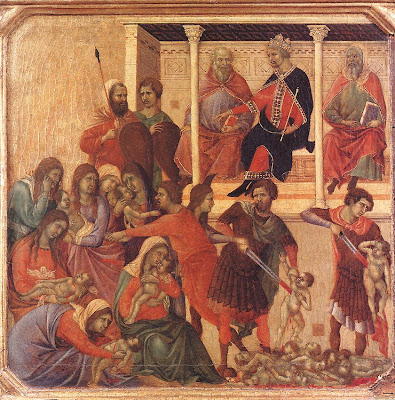Here are some excerpts from a New Year's Eve sermon by Desmond Tutu :
And so God brings us to the beginning of a new year... Clean, clean, unspoiled time!
God says, "Get up." He dusts us off and says, "Try again." For God is giving us the opportunity of a new beginning, that we should start again. For God says: "You know, I created you for goodness. I created you for love, for peace, for laughter, for caring, for sharing, for compassion, for family."
And God has a dream--a dream that we will realize that we are members of one family...
But that's the one lesson God wants us to learn: You are family. Not as a figure of speech, but as the most real thing about us. That we're members one with another. In this family there are no outsiders. All are insiders. There are no aliens.
All, all, all belong: black, white, yellow, gray, rich, poor, educated, not educated, beautiful, not-so-beautiful, lesbian, gay, straight. "Hey," God says, "all, all." Even those we call extremists, they belong, they belong. That's why it's so radical. That's why if we were able to accept this truth, then we wouldn't--we couldn't--spend those amounts on budgets of death and destruction, when we know just a small, small fraction of that would enable God's children everywhere to have clean water, enough to eat, adequate education, accessible health care, safe home environment.
If we believed we are family, we would not be discussing what we do with budget surpluses. We'd say: "The ethic of family applies. From each according to their ability, to each according to their need." And so we'd say, "Where are they hungry?" For you see, we are God's stewards. All of this belongs to God. And God says, "I have faith in you. Heaven, let go."
We ring out the old and ring in the new on a high note of hope, because God believes in us. This God who is Alpha and Omega, the beginning and the end. This God who is always there.

 The Flight into Egypt
The Flight into Egypt






















